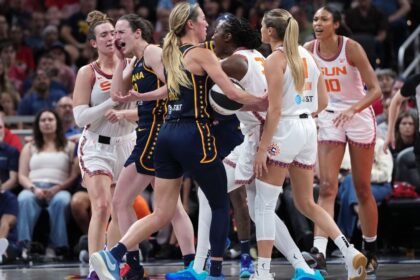WNBA: Tension in CBA Negotiations
The WNBA has presented a revenue-sharing proposal without a cap to its players, an offer that has generated controversy and debate between the league and the WNBA Players Association (WNBPA). The league called the union’s statement, which contradicts this assertion, “frustrating and counterproductive.” This exchange of statements takes place amidst negotiations for a new collective bargaining agreement (CBA). The main discussion centers on the salary model and income distribution, and whether these will be fixed or linked to specific growth indicators. The union accused the league of trying to “buy time, cover up a situation and reinstate a system that is not tied to any part of the business and intentionally undervalues the players.” The league responded directly to the union’s accusations.The league also expressed its frustration at what it considers a misrepresentation of its proposals by the union, while accusing it of delaying the negotiations. The WNBA stated that, despite its comprehensive proposals, the Players Association has still not presented a viable economic proposal and has refused to meaningfully engage on many of the terms proposed by the league. The league remains firm in its willingness to continue negotiating in good faith. The current CBA, signed in January 2020, expires on October 31st. However, missing that deadline does not imply an automatic lockout. The league and the union could agree to an extension to have more time to reach an agreement, something that has already happened in previous negotiations.“It is inaccurate and surprising that the Players Association claims the WNBA has not offered a revenue-sharing model without a cap that is directly tied to the league’s performance,” reads the WNBA statement. “The comprehensive proposals we have made to the players include a revenue-sharing component that would result in an increase in player compensation as league revenue increases, with no upper limit.”
WNBA Statement







